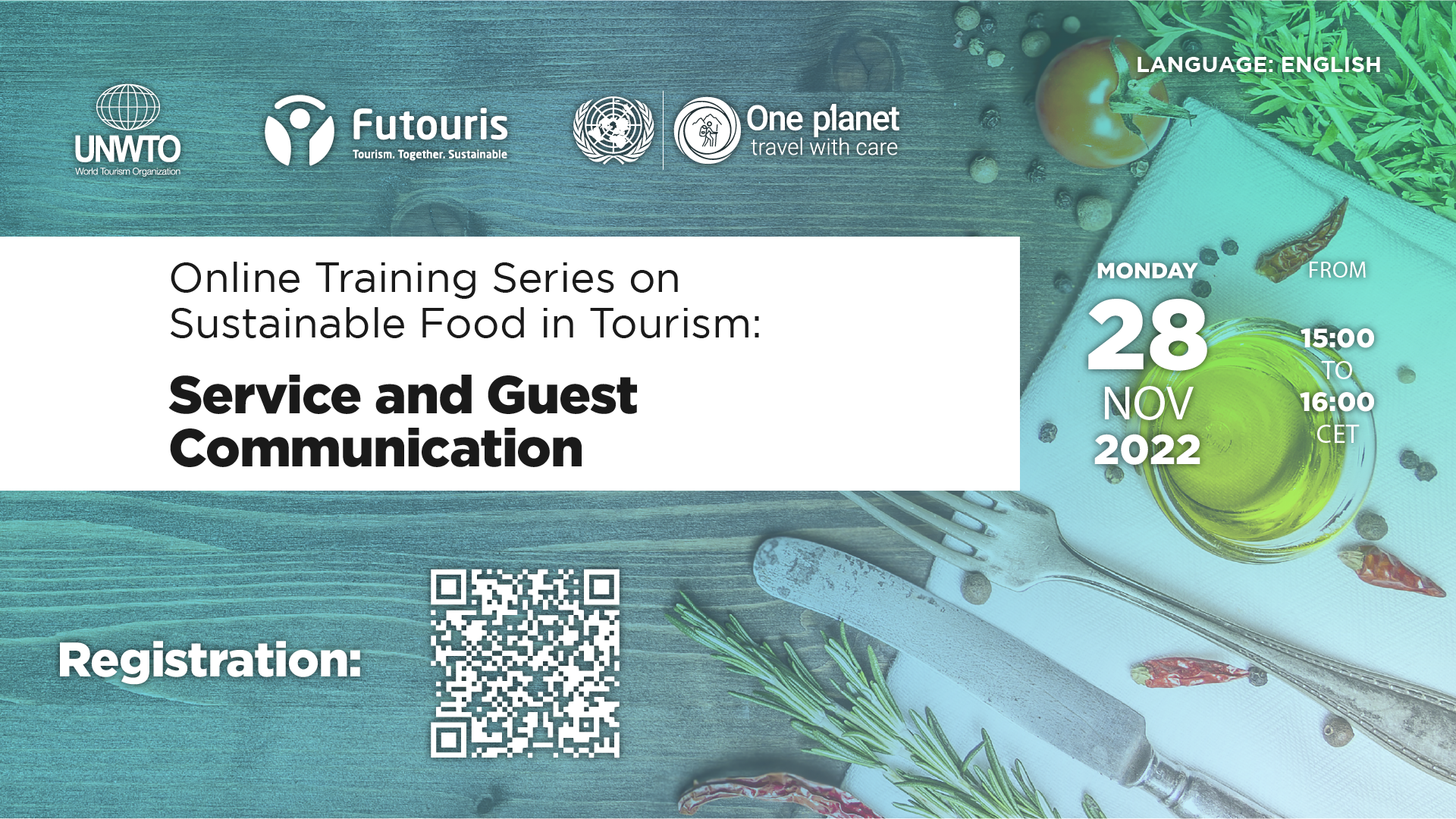Online Training Series on Sustainable Food in Tourism: Service and Guest Communication
This training will discuss ways to gradually reduce unsustainable food components and replace them with more sustainable alternatives. Tips for appealing food presentation will also be provided to prevent food waste and encourage guests to consume more sustainably. A beautiful food presentation is ineffective if it is not accompanied by communication about what has been changed to ensure guests understand and embrace the sustainable food concept.
Sustainable menu planning that takes into account all aspects of sustainability is critical to the successful implementation of a sustainable food policy. A diet rich in vegetables, fruits, whole grains, nuts and seeds and less based on animal foods has a lower environmental impact than the current average "meat-heavy" diet.
Watch the recording here.
Find the agenda here.
Find the presentation here.
Find the Manual: Sustainable Food Tools – Ways to Communicate with Guests
This session is part of the Online Training Series: Sustainable Food in Tourism. You can find more information about the whole series here.
Online Training Series: Sustainable Food in Tourism
Sustainable food production and consumption is one of the most important levers to protect planet and people. One reason for this is the constantly and rapidly growing demand for food in a world whose population is expected to grow to over 9 billion people by 2050. At the same time, food producers around the world often do not receive a fair share of the global food trade and in many cases work under poor conditions. Additional pressure comes from greenhouse gas emissions caused by food production, which play a crucial role in climate change. Furthermore, the health aspect of food is a major concern, especially in modern societies, and rapid socio-cultural change raises the issue of protecting food cultures and traditions. While food consumption is considered by most tourists to be an important part of their trip, unsustainable food consumption can cause harm to tourists, locals, and destinations in general. Overuse of scarce resources, excessive food waste, and poor working conditions are some examples of areas where tourist food consumption has negative consequences for a destination. This online training series promotes the understanding and management of food in a holistic, sustainable way to ensure the future success of tourism businesses around the world.



